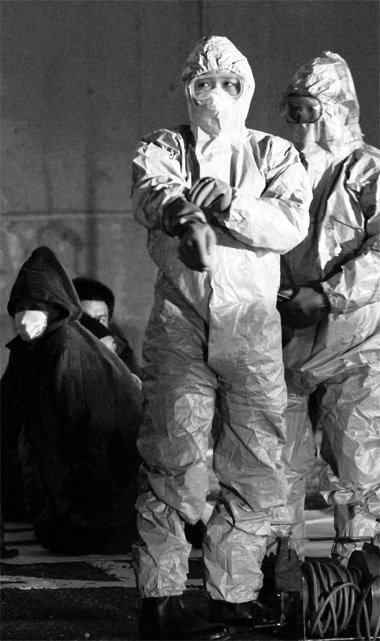Focus
Japan struggles
Updated: 2011-03-14 10:46
By Taiga Uranakaand Ki Joon Kwon (China Daily)
Pros and cons
Proponents of nuclear power say its public safety risks are no stronger than those for fossil fuels. Three Mile Island and Chernobyl were the only major accidents in 14,000 reactor-years of commercial operation in 32 countries over five decades, the World Nuclear Association said.
Nuclear engineers believed that with enough redundancy built into plant safety systems, risks such as natural disasters can be warded off. Proponents also say that nuclear power produces virtually no conventional air pollution, qualifying it as "clean energy".
Opponents worry about the complexity of design and engineering of nuclear plants. Any failure or operation error could lead to catastrophic consequences, they say. Radioactive substances, if dispersed, pose a direct radiation hazard, can contaminate soil and vegetation, and be ingested by humans and animals.
The management of spent fuel - its transportation and storage - also poses safety risks because it is still highly radioactive with devastating environmental potential.
Duan Yan, Li Jing, Qin Jize, Li Lianxing, Hu Yinan and agencies contributed to this story.
Reuters
|
Authorities in protective gear stand next to people from the evacuation area near the Fukushima II nuclear plant in Koriyama on Sunday. The Japanese government was preparing to distribute iodine to protect people from radioactive exposure. Kim Kyung-Hoon / Reuters |
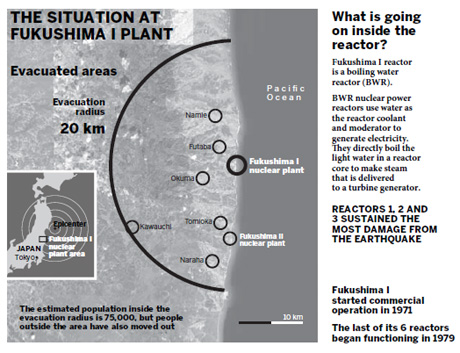
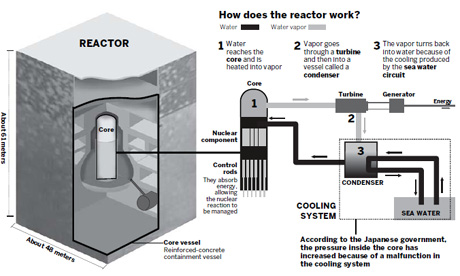
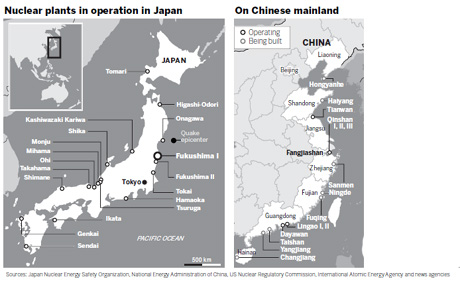
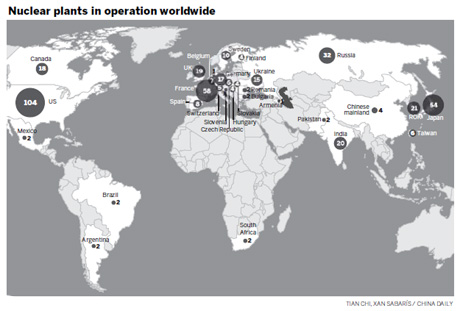
Specials

Earthquake Hits Japan
A massive 8.8 magnitude quake hit the northeast coast of Japan on March 11,2011.

NPC & CPPCC sessions
Lawmakers and political advisers gather in Beijing to discuss major issues.

Labor crunch
Worker scarcity is no longer confined to eastern areas, minister says.
